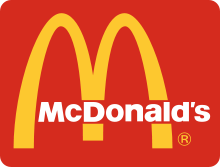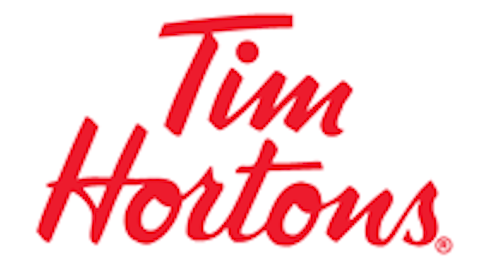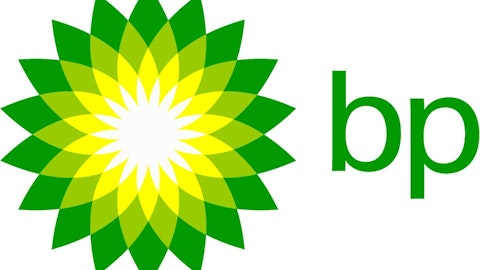Shareholder meetings are getting exciting again. Just last week a nine-year-old challenged CEO Don Thompson of McDonald’s Corporation (NYSE:MCD) with an impassioned plea to stop marketing to kids. At Chevron Corporation (NYSE:CVX) environmental and shareholder activists joined in an uncommon cause to ban company monies for political influence. Last fall employees disrupted the Darden Restaurants (NYSE:DRI) shareholder meeting to decry working conditions.
You almost feel sorry for CEOs as they face the pitchforks and torches. At McDonald’s these issues of nutrition and marketing to kids come up annually although a cute and articulate fourth grader, Hannah Robertson, attracted media interest this time. However, thisis small potatoes (pun intended) compared to some major shareholder propositions.
A case study of shareholder activism
A most interesting shareholder proposition was at Chevron Corporation (NYSE:CVX). Boston based environmentally responsible investment firm, Green Century Capital Management, aligned its interests with Richmond CA local environmental activists to ban Chevron from using company funds to influence political outcomes.
In question was Chevron’s record $2.5 million contribution to the Congressional Leadership Fund, a GOP SuperPac, during the last national election cycle. By no means is Chevron Corporation (NYSE:CVX) the only company to be challenged on political spending: rival Exxon Mobil Corporation (NYSE:XOM), Bank of America Corp (NYSE:BAC), and 3M Co (NYSE:MMM) are also facing shareholder ire over political spending.
Possibly the most controversial use of Chevron Corporation (NYSE:CVX) funds to influence an election was the $1.2 million spent on the Richmond CA mayoral election in hopes of ejecting Green Party mayor Gayle McLaughlin from office. (She still won). Her biography on the city website reads, “Gayle helped facilitate grassroots efforts calling for fair taxation that led to an historic settlement in which Chevron has agreed to pay an additional $114 million into the City’s general fund over the next 15 years (an average of $7.6 million more per year).” Ouch, no wonder she’s a thorn in their side.
A Chevron refinery fire there last August sent 15,000 to seek medical treatment, according to the Richmond CA city website. Recalling “Erin Brockovich” one resident claimed he would challenge CEO John Watson to drink a glass of the town’s water which he believes to be contaminated by Chevron Corporation (NYSE:CVX).
At the end of the day on May 29, it was all over and approximately 96% of shareholders voted against a ban on company funds used for political influence. Shareholders voted overwhelmingly against other shareholder proposals and voted for the company’s recommendation on all 13 proposals up for a vote. The status quo prevailed.
The status quo
When it comes to issues on social responsibility or corporate governance shareholder proposals (except those from big guns like Icahn, Loeb, Ackman, and Einhorn) rarely prevail. Investors may greet this with mixed emotions. On the one hand, shareholders had their say and the majority ruled but on the other, a company continues to do business in a manner distasteful to a socially responsible investor.
As with McDonald’s Corporation (NYSE:MCD)’s nothing changed after the shareholder meeting with CEO Thompson repeatedly reassuring young Hannah MacDonald’s doesn’t market to kids and their menu choices are becoming increasingly healthier.
With Darden, nothing changed either after current and former employees backed by shareholder/social justice charitable foundation, the Nathan Cummings Foundation, confronted CEO Clarence Otis at the meeting over paid sick leave, discrimination, and underpayment.
In 1932 legendary value investor and Warren Buffett mentor Benjamin Graham reminded fellow shareholders they, “are owners of a business and not merely owners of a quotation on the stock ticket,” and should be involved and vocal. More than eighty years later most retail investors are mostly tossing proxies in the circular file or deleting to trash. Up to his death in 1976 Graham was still pounding the table for shareholder activism.
What’s a shareholder to do?
Given most CEOs and boards are wary of shareholder activists and ratings agencies like Fitch have a negative view of the trend in shareholder activism should you just be a passive investor? No, not necessarily, but know this… one retail investor will have subatomic size impact especially with megacaps like McDonald’s Corporation (NYSE:MCD)’s and Chevron Corporation (NYSE:CVX).
You can vote with your wallet and sell but you may miss out on what is an otherwise great company’s stock price appreciation as well as dividends.
Chevron Corporation (NYSE:CVX), the integrated oil company, is a Dividend Aristocrat as of 2012 having consistently raised their yield for 25 years, raising it last year by 13% and this year by 11%. McDonald’s Corporation (NYSE:MCD)’s, world’s largest fast food chain, is also a Dividend Aristocrat. Darden, while not a Dividend Aristocrat, pays out 3.80%, a healthy dividend for a casual dining chain.
Chevron has a reasonable trailing P/E of 9.48 and pays a 3.20% dividend. Its payout ratio is a low 27%. Over the last year its stock has risen 28.54%. Chevron Corporation (NYSE:CVX) won’t be much of a grower going forward as analysts expect a five-year EPS growth rate of only 1.58% year over year.
McDonald’s Corporation (NYSE:MCD)’s has better growth prospects with an 8.76% growth rate predicted. It pays a 3.10% dividend but the payout ratio is 55%. Its trailing P/E is 18.57 with a forward P/E of 15.87. Share price appreciation has underperformed the S&P 500 at 9.92% over the last year while the stocks of smaller competitors Jack in the Box Inc. (NASDAQ:JACK) and The Wendy’s Company (NASDAQ:WEN) are up 42.54% and 33.85%, respectively.
As for Darden Restaurants, owner-operator of 2,000 Red Lobster, Olive Garden, Bahama Breeze, and other brand restaurants in the US and Canada, it has a 16.64 trailing P/E. The stock is barely up 2.42% over the last year. That big yield also comes at a worrying 59% payout ratio. However, its growth rate is expected to be better than Chevron’s at 5.37%.
The Foolish Takeaway
Unless deep pocket shareholder activists are involved, little effect is seen from activist proposals. That also means as a small individual investor you will likely have little impact on the company’s business.
You have to keep an eye on the prize and remember why you bought the stock. In the case of Chevron and McDonald’s Corporation (NYSE:MCD)’s a long time reliable yield is an important reason to stay. Darden, with its higher yield has its own justification, but it has not been an outperformer.
AnnaLisa Kraft has no position in any stocks mentioned. The Motley Fool recommends Chevron and McDonald’s. The Motley Fool owns shares of Darden Restaurants and McDonald’s.
The article Are Activist Shareholders Good for Your Stock? originally appeared on Fool.com.
Copyright © 1995 – 2013 The Motley Fool, LLC. All rights reserved. The Motley Fool has a disclosure policy.




